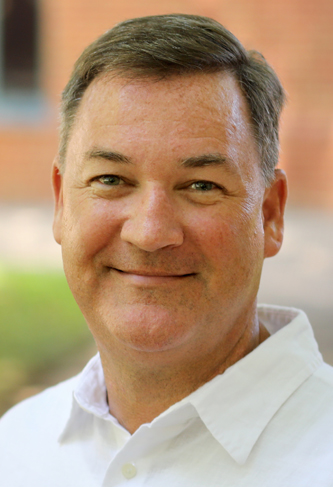A student in Williamsburg, Virginia, who was suspended for discussing the Parkland, Florida, school shooting with his classmates may proceed with a suit against his school district for violating his First Amendment rights, following a recent ruling by the Fourth U.S. Circuit Court of Appeals. The appeal was briefed and argued by students in the Appellate Litigation Clinic at the University of Virginia School of Law.
Starbuck v. Williamsburg James City County School Board is one of several recent wins for the Appellate Litigation Clinic, which gives third-year students the opportunity to learn the finer points of appellate practice and to brief and argue cases in courts around the country, says Professor Scott Ballenger ’96, the clinic’s director. The chance to argue a real case before real judges is a unique one for budding lawyers.

“I was seven years out of law school before I got to make my first appellate argument,” Ballenger said. “This is a great opportunity for them.”
One day after the 2018 mass shooting at Marjory Stoneman Douglas High School in Parkland, a high school student, Jonathan Starbuck, was talking about the incident with his classmates. A teacher overheard their conversation and reported it to police and the school administration. Starbuck was initially removed from class and then suspended for two days. He appealed his suspension, but the local school board denied it, finding that the suspension was “proper,” and that Starbuck had engaged in a “classroom disturbance.”
Starbuck then sued the school board in federal court, claiming that its actions had violated his civil liberties. A District Court dismissed the complaint, which Starbuck had filed on his own. When Starbuck appealed, the Fourth Circuit asked Ballenger and the Appellate Litigation Clinic to represent Starbuck.
Three third-year law students — Benjamin Lerman, Jacob Larson and Gregory Eng — wrote the appellate brief, with Lerman and Larson arguing the case in January. Ballenger supervises and advises students in writing their briefs and helps prepare them for oral argument by conducting moot court-style practice sessions. Because the federal courthouse in Richmond was closed due to COVID-19 restrictions, oral arguments in the case were conducted virtually, with Lerman and Larson speaking from a conference room at the Law School. Nevertheless, said Larson, who will be working for the IRS next year, the experience was “as close to the real thing as we could get.”
“It was absolutely nerve-racking,” he added. “There’s an incredible rush that goes with it.”
In a 14-page opinion issued on March 15, the Fourth Circuit reversed the dismissal of Starbuck’s First Amendment claim but affirmed dismissal of his Fifth and 14th Amendment claims. In a footnote, the court thanked Ballenger and the UVA students “who have provided Starbuck with excellent representation on appeal.”
Ballenger estimates that the clinic’s 14 students currently are working on about 10 active appeals in courts around the country. The goal, he said, is to give each student the chance to participate in at least one oral argument during the yearlong course.
In addition to teaching and advising the clinic, Ballenger still represents a few clients himself from his days in private practice. In March, he argued a case before the U.S. Supreme Court on behalf of the Union Pacific Railroad concerning the interpretation of the 1911 Locomotive Inspection Act.
In a statement to Law.com, Larson called the Starbuck decision “exciting” and lauded the clinic’s work. “UVA’s Appellate Litigation Clinic offers us first-hand experience with interesting and important constitutional questions. The issues in this case affect the lives of students across the country.”
Ballenger agreed. “The students do a great job. We win a lot of these cases.”
A second decision came down in their favor last month. On March 14, the day before the Starbuck decision, two more former clinic students, Jennifer Elchisak ’21 and Nina Oat ’21, won an appeal in the Third Circuit for a prisoner who claimed that the Pennsylvania Department of Corrections violated his civil rights by housing him in an upper tier cell in deliberate indifference to a seizure disorder that was noted in his medical file. Elchisak and Oat argued the case in September, after they graduated. A third student, Jehanne McCullough ’21, also worked on the briefs. The court partially reversed an award of summary judgment in favor of the commonwealth and remanded the case to the District Court.
Founded in 1819, the University of Virginia School of Law is the second-oldest continuously operating law school in the nation. Consistently ranked among the top law schools, Virginia is a world-renowned training ground for distinguished lawyers and public servants, instilling in them a commitment to leadership, integrity and community service.


